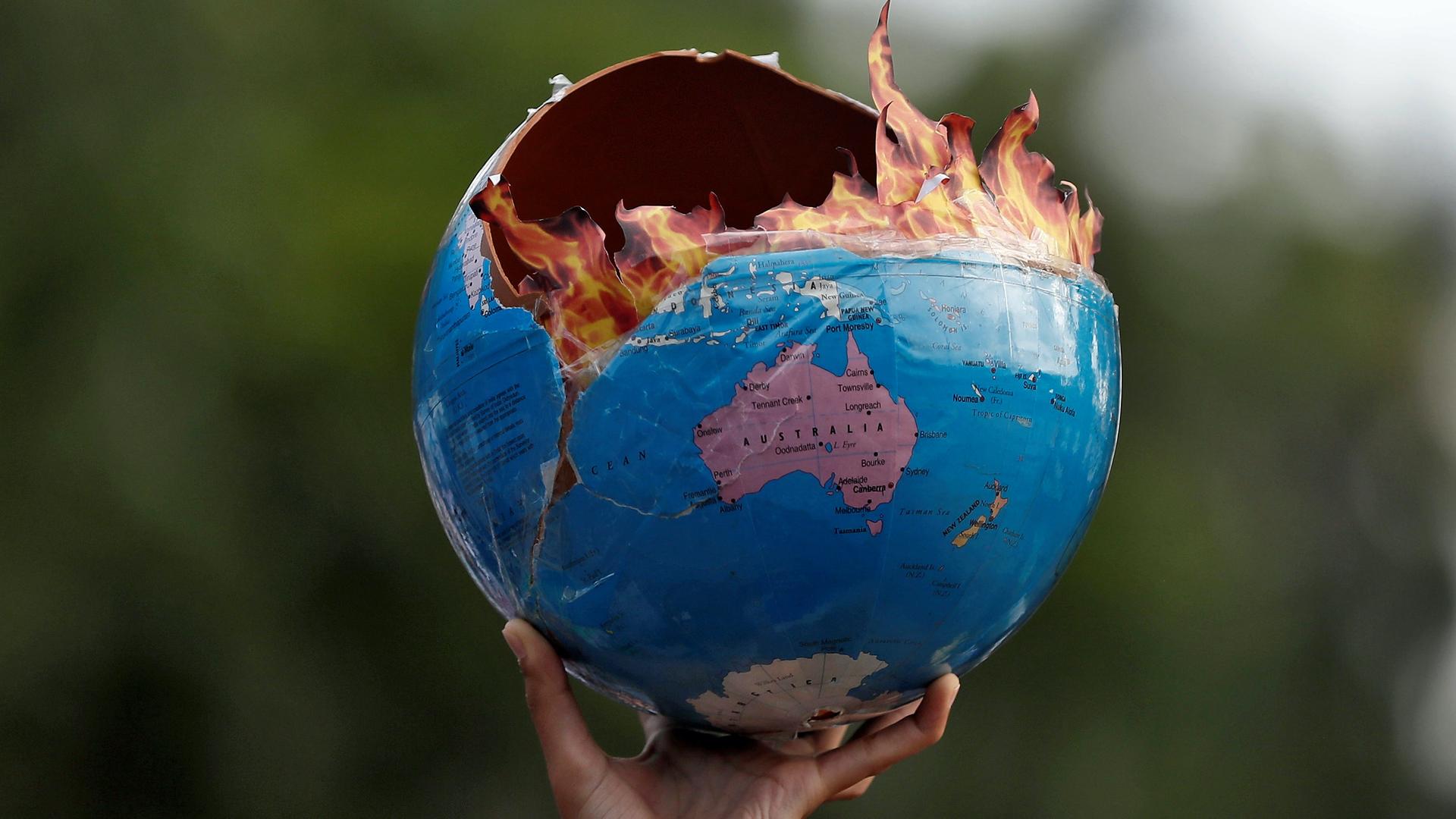‘The mother of all injustices is climate change,’ says former diplomat and climate change leader
Christiana Figueres, a former diplomat and longtime climate change leader, sees optimism as a key solution for climate change. In fact, her whole brand is optimism.
Figueres presided over the 2015 Paris climate talks for the United Nations. Since then, she founded a group called Global Optimism, and co-authored a book titled, “The Future We Choose: Surviving the Climate Crisis.”
Why does Figueres choose relentless, stubborn optimism to address climate change? She believes the only choice we have is to take a determined, optimistic mindset.
“It is only by doing something positive to contribute to the solution that you actually dispel the bubble of despair and move into a much more constructive frame of mind and a much more impactful space in which you can make a difference. Yes, we have a very difficult situation in front of us. But if we are negative about it, I guarantee we will not be able to get out of it,” she explains.
The World’s Carol Hills spoke with Figueres this week from the activist’s home in Costa Rica, to learn about her philosophy of why optimism is imperative in the struggle for climate justice.
Related: What can COVID-19 teach us about the climate crisis?
Carol Hill: You have a podcast called “Outrage and Optimism.” Who or what are you outraged at?
Christiana Figueres: I’m outraged at the fact that we have only started to address climate change. I am particularly outraged at those people who deny reality. That, I think, is really absolutely unforgivable.
Related: This researcher finds hope in ‘bright spots’ among coral reefs
I want to bring in the pandemic. There are a lot of parallels between the pandemic and climate change, global problems that need global solutions. Has the pandemic changed your perspective about the ability of countries to work together to tackle these big global issues?
I have been concerned about the fact that it was unavoidable that the first few months of tackling the pandemic was basically an isolationist approach — “let us build the walls around ourselves” — but, to really tackle the pandemic, we are going to have to develop a vaccine and the development of the vaccine, plus the production of the huge scale of vaccines that we’re going to need, plus the distribution — all of that cannot be done in an isolationist way…it has to be done through collaboration across companies and certainly across countries. So, I think the biggest lesson for the climate is yet to come. The biggest lesson is going to be, do you really want to tackle this? Well, then the only way is radical collaboration.
Related: Mutual aid groups respond to double threat of coronavirus and climate change
The UN’s big annual climate change meeting has been delayed from this fall until 2021. The 2020 meeting was an important deadline when countries were asked to set new, more ambitious targets for cutting down on carbon emissions. How much of a setback is this delay?
To be very frank, I was against delaying because I have always felt that a timeline is a healthy pressure. However, after the decision was taken, we have now seen that there is incredible public finance mobilization that is occurring around the world. That financing is at such a scale and at such a speed that it will determine the carbon intensity of the global economy for at least 10 years, if not more. So, there is a huge opportunity here over the next 18 months, which are precisely the 18 months to COP26 [United Climate Change Conference]. For countries to really be very mindful about injecting that capital in such a way that it both gets the wheels of the economy spinning again and leads us to more carbon-efficient sectors and companies and an economy.
Like the coronavirus pandemic, some people are far more vulnerable to the impacts of climate change than others. You talk about the power of optimism to help inspire people to act on climate change and lower emissions. What do you see as the potential of optimism to also address the inequalities that are exacerbated by climate change?
You know, that’s probably the most important question. The mother of all injustices on this planet is climate change. Now, that is where our moral obligation to address climate change stems from. Because if we do not devote our energies, our thinking, our actions, our decisions, our finance, our policies, toward addressing climate change, we are implicitly, or in fact, even explicitly contributing to more inequality. It is precisely because of the inequality that we have to address climate change.
This interview has been edited and condensed for clarity.
Our coverage reaches millions each week, but only a small fraction of listeners contribute to sustain our program. We still need 224 more people to donate $100 or $10/monthly to unlock our $67,000 match. Will you help us get there today?
